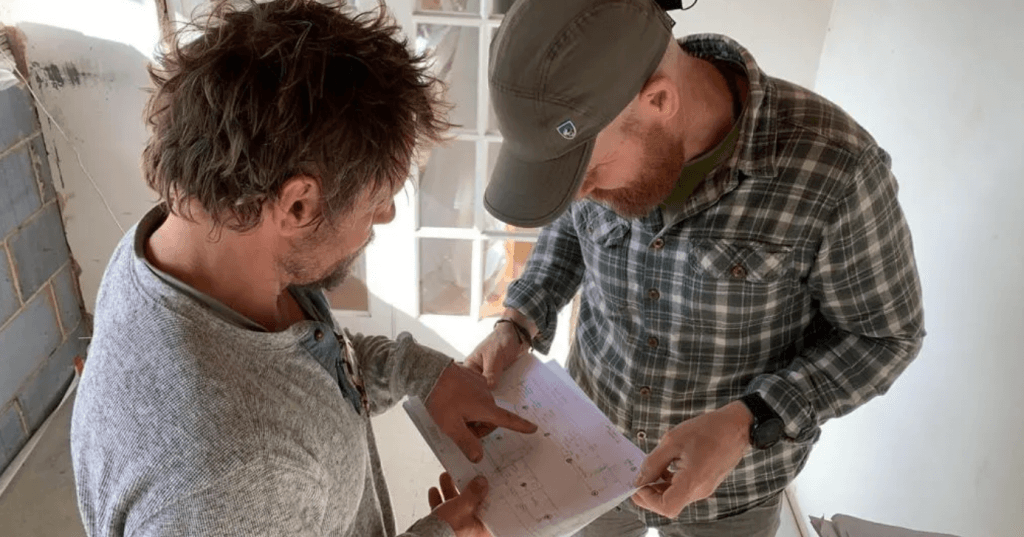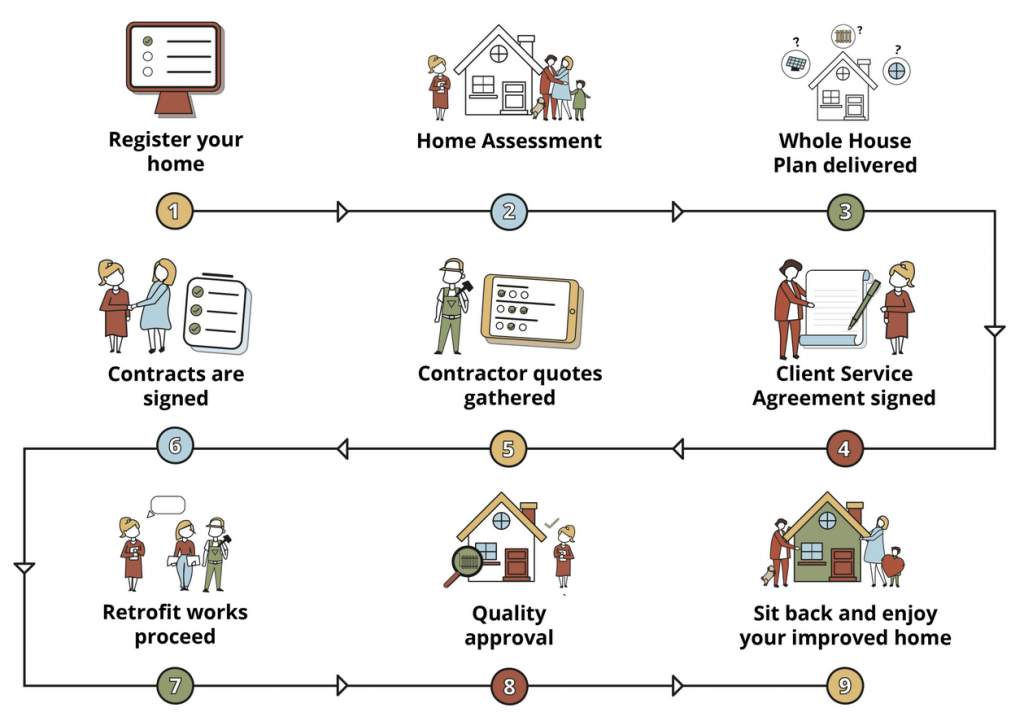Learnings from launching a home retrofit service – two years in
We’re two years into Cosy Homes Oxfordshire, and we’ve learnt a lot about launching a whole house retrofit service
For the past two years the Low Carbon Hub has been the lead project partner on Cosy Homes Oxfordshire, developing a one-stop whole house retrofit service to offer homeowners a simple way to reduce the carbon emissions from their homes by making energy improvements. These two years have been the ‘pilot phase’ of the project, during which the project partners (us, RetrofitWorks, and the National Energy Foundation) received grant funding from the UK Department of Business, Energy, and Industrial Strategy (BEIS) as part of their programme of pilots working to address barriers in developing the market for home retrofit in the UK.
This funding allowed us to design and test an end-to-end domestic whole house retrofit service for the able-to-pay market in Oxfordshire, building on existing experience of this model from RetrofitWorks.
During this pilot phase we’ve made countless learnings about delivering home retrofit – from the marketing to engaging with contractors to delivering work onsite. These learnings are crucial if we are to build the market for home retrofit across the UK, and reduce the carbon impact of our homes – and so we wanted to share them, enabling others to build on our learnings so far.
This post will cover the key learnings we’ve developed in our journey so far – and you can read more detail, as well as learn about the impact of the scheme so far and the next steps for the service in the full Pilot Phase Learnings and Impact Report over on the Cosy Homes Oxfordshire website.
Customers are more open to whole house retrofit than we had initially anticipated
The whole house approach to retrofit is at the heart of our service, to ensure high quality retrofits that bring down carbon emissions as efficiently as possible.
This decision has only been reinforced by our findings from piloting the scheme:
- A higher number of customers than anticipated are opting for a complex mixture of multiple retrofit measures for their final project.
- Feedback shows that customers recognise and appreciate the high level of expertise in the recommendations given, especially in the Whole House Plan.
Initially, we were offering simpler retrofit measures, as we assumed customers would find it difficult to engage with our core whole house approach and there may be a lack of demand.
As we have tested the model with real-life customers, we’ve found that our clients were happy to engage with the whole house approach. We’ve also come to the conclusion that delivering simpler projects is not financially viable for us at the moment due to the time it takes for a Retrofit Coordinator to coordinate any project.

The key barrier to delivering home retrofit targets is the readiness of the supply chain
Throughout the pilot phase, the biggest barrier for Cosy Homes has been the readiness of the supply chain for retrofit in Oxfordshire to work in a coordinated way to deliver a whole house approach to retrofit such as ours.
It has been fairly easy to identify with specialists (such as heat pump installers) who are already engaged in the retrofit market. For generalist builders and contractors, though, we’ve found it to be difficult for them to see the potential in working with us, largely because those who come highly recommended are already extremely busy and have no need for additional customers.
Though this remains the biggest challenge (for us and for the retrofit market generally), we have made significant movements in this area including: hiring a full-time Membership Development Manager to focus on building the supply chain and improving the experience of joining the team as a contractor, connecting with local and national projects working on Green Skills, hosting a Low Carbon Homes event focused on the supply chain challenge.

Finding customers has been fairly easy, but progressing them to onsite work hasn’t
From the start of the pilot we have had no issue with homeowner demand. Indeed, as of March 2021, we have over 550 homeowners registered with Cosy Homes – with around 50 of those on a waiting list to have their initial home assessment booked in (as of March 2021).
However, we have often struggled to progress new customers. This has been due to the difficulties with the supply chain outlined previously, which have meant we’ve been unable to move some projects to delivery. It’s also because we have been in a pilot phase, and have been building our processes as a team whilst working with real customers. The planned customer journey assumed eight weeks between a customer registering and deciding which measures to go ahead with. This hasn’t been the reality, and we have seen disappointment from some customers who expected a quicker process.
We have addressed this through scaling back our marketing, implementing a waiting list to manage new registrations, and ensuring we have clear communications throughout the customer journey on expected timelines.

There’s a long way to go to bring down the carbon emissions from all homes
As we’ve developed Cosy Homes Oxfordshire through the pilot phase it’s become clear that there are limitations to our work. Even with our service up and running, significant gaps remain if we are to be able to retrofit all homes in our county, particularly:
- Behaviour change: our ‘fabric first’ approach to retrofit focuses on the building itself, rather than the energy-related behaviour of the residents, which is also important to address.
- Political will: there is a clear need for a nationwide, long-term, government scheme to address the energy efficiency of UK homes on a wider scale. The failure of the Green Homes Grant only exacerbates this need.
- Affordability: our service is only available for an able-to-pay market, serving projects above £10,000, with our average project value being around £25,000. The question of how to facilitate retrofit measures for those less able-to-pay remains a huge gap.
- Rental properties: we had a private rental strand to our pilot phase, aiming to engage with landlords and tenants. This has been largely unsuccessful.
We hope to explore ways to expand the Cosy Homes Oxfordshire service to serve these needs in the future, once we’re comfortable that the core model is functioning well and is financially sustainable. We will also continue to work collaboratively with other local organisations and schemes to identify other ways to mitigate these gaps – as there’s plenty of room for more individuals and organisations to work on this important issue in our local area.
Read next…
 News story
News storyLow Carbon Hub and partners win bid to bring home retrofit project to Oxfordshire
We are really pleased to announce we have led a winning consortium bid with the Department for Business, Energy and Industry Strategy (BEIS) to lay the foundations for developing a home retrofit scheme in Oxfordshire. Delivering the project will be the Low Carbon Hub, the National Energy Foundation which is already active in the county providing the…
